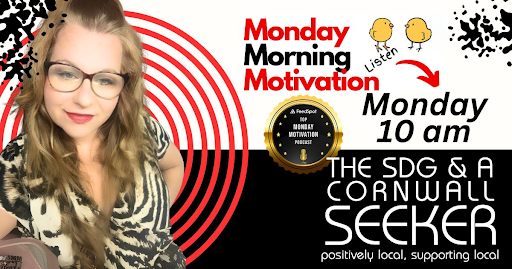Q: Julia, we keep hearing that big media outlets are struggling to survive. From your perspective as a hyper-local publisher, why do you think the media landscape is changing so drastically?
Julia: The media world is evolving because reader needs are evolving. Big outlets often cover wide audiences, but in doing so, they sometimes lose that personal connection to their community. People want stories about their neighbors, about the businesses and events right out their front door. That’s where hyper-local outlets like The Seeker thrive—we’re not trying to compete with global news giants; we’re here to serve Cornwall directly.
Q: What does “hyper-local” mean to you in practice?
Julia: For The Seeker, it means telling the stories that might otherwise go untold—featuring small business owners, covering local musicians, artists, fundraisers, or profiling residents who contribute to our city’s spirit. Big outlets can cover big headlines, but we care about the heartbeat of Cornwall, and I think readers really respond to that.
Q: Some say print is dead. Yet The Seeker continues to publish and engage with the community both online and in print. How do you balance the two?
Julia: Print isn’t dead—it just needs to be relevant. We’ve found that people still love picking up something tangible at the coffee shop or the market, something they know is filled with stories about their neighbors and their town. At the same time, we use digital to amplify those voices even further. It’s not about choosing one or the other; it’s about making sure both platforms serve the community.
Q: What challenges do hyper-local outlets like yours face that larger outlets might not?
Julia: Resources are always a challenge. We don’t have huge teams, big corporate budgets, or entire departments dedicated to research or marketing. Everything we do has to be grassroots—built on relationships with advertisers, readers, and contributors. But that’s also our greatest strength, because our readers know we are authentically connected to the city.
Q: Why do you think communities like Cornwall respond so well to locally owned media?
Julia: Because they see themselves in it. When a resident opens one of our issues, they see faces they recognize, businesses they shop at, causes they support. That builds a sense of pride and identity. People want to be celebrated and acknowledged, and hyper-local publications give them that space.
Q: Looking ahead, how do you see the future of local media shaping up?
Julia: I firmly believe hyper-local is the future. We may not report on federal politics every day or international conflicts, but we’ll tell you who opened a new bakery around the corner, who’s raising funds for a community project, and why a local team is inspiring the next generation. Those stories matter deeply to people’s daily lives. As the big outlets consolidate or close, small hometown voices are becoming more essential than ever
Q: If you could offer advice to communities that don’t have a strong local publication, what would you tell them?
Julia: Start one! It doesn’t have to be fancy or huge. Start collecting local stories, celebrate your people, and give them a platform. Media doesn’t only come from the top down anymore. It can start on your street, in your neighborhood, with someone willing to ask questions and share stories. That’s how you build connection, and in the end, that’s what media should be about.



























